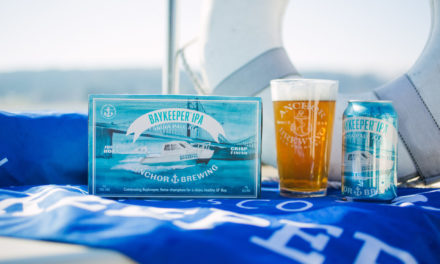
Adam Raudsep, CPA
In May 2014, the Financial Accounting Standards Board (FASB) issued Accounting Standards Update (ASU) 2014-09, known as “Revenue from Contracts with Customers” (ASC 606).
FASB is the independent, private sector, not-for-profit organization that establishes financial accounting and reporting standards for public and private companies and not-for-profit organizations that follow generally accepted accounting principles, or GAAP. Under ASC 606, U.S. companies will have to recognize revenue when they transfer goods or services to a customer (i.e. control has transferred), rather than when the risk of loss from the sale of goods or services has passed to the customer.
For nonpublic entities, the new standard goes into effect for annual reporting periods beginning on or after December 15, 2018, and interim periods beginning after December 15, 2019. As a result, wineries and other alcohol beverage producers will need to reexamine their financial statements and consider any necessary enhancements to meet the presentation and disclosure requirements for recognizing revenue.
Trade Spending
When you’re an alcohol beverage producer, providing a certain level of product support for your sales channels—trade spending—is part of doing business. The process, however, isn’t without issues when it comes to financial accounting and reporting.
Trade spending incentives are presumed to be a reduction of revenue under both the old and new standards. That reduction presumption can be overcome if a company can show it received an identifiable benefit from the trade spend. An example of an identifiable benefit would be a good or service that the company would pay for to promote or market their product regardless if the customer purchases the company’s product or not. Product demonstration costs and advertising are generally viewed as identifiable benefits. The amount paid for these types of goods or services must be representative of fair value. In the event the amount paid exceeds fair value, then the excess amount should be netted against revenue.
Other Considerations
Generally, a contract explicitly states the goods or services the company promises to transfer to a customer. However, the promised goods or services identified in a contract may not be limited to the goods or services explicitly stated in that contract. This concept is important, because if an entity doesn’t identify an implied promise in a contract, it could recognize revenue at the wrong time.
In the wine industry, examples of arrangements that may contain additional performance obligations include:
- Grape sale contracts (i.e. different varieties and/or delivery expectations);
- Custom winemaking services (i.e. blending, aging, bottling); and
- Bulk wine sale contracts (i.e. different varieties and/or delivery expectations, temporary storage arrangements).
New Disclosure Requirements
All companies will need to disclose significant judgments made in applying the new guidance, including the timing of satisfying performance obligations, determining the transaction price at the contract level, and allocating amounts to performance obligations within the contract. In addition, the new standard requires disclosure of information about contracts with customers, which, for wineries, may include:
- The nature of the goods or services the entity has promised to transfer;
- When the entity typically satisfies its performance obligations (such as upon shipment, upon delivery, etc.);
- Significant payment terms, including when payment typically is due;
- Whether any contracts have a significant financing component;
- Whether any consideration amount is variable and information about the methods, inputs, and assumptions used for assessing whether the estimate of variable consideration is constrained; and
- Obligations for returns, refunds, and other similar obligations.
For more information about how the new revenue recognition standard may impact your company, contact your financial professional.
Adam Raudsep, senior manager at Moss Adams LLP, has practiced public accounting since 2005, providing audit services to food, beverage, and agribusiness companies as well as investment advisory clients. He regularly works with wineries, breweries, food processors, row and permanent crop growers, as well as investment funds and advisors. He can be reached at (415) 677-8259 or adam.raudsep@mossadams.com.









